Applentive.com
We Baby Boomers believe we have changed the world but many of us Boomers have Millennial offspring and it is clear that they are changing the world but in a different way! Two areas where the changes are very evident are in technology and healthcare, or it could be called one area – healthcare technology.
According to the U.S. Census Bureau in 2015 there were 83 million Millennials living in the US (those born between 1982 and 2000-or now some say 2004). There are only about 75 million of us Baby Boomers (1946-1964) alive today. According to Mintel (a market intelligence agency), Millennials will account for more than $1.4 trillion in spending per year by 2020. Just like the Baby Boomer generation before it, this generation is now wielding its influence.
In the healthcare space, the following 5 ways of change were discussed in a recent article in Becker’s Hospital Review by JT Ripton:
1. Increased Demand for Technical Innovation
Millennials grew up on the Internet and with mobile phone technology. Digital technology is a way of life and they expect others, including physicians, to be technologically savvy. As this group has more healthcare needs, they are demanding solutions that include online health portals, easy self-serve options, online appointment scheduling, electronic medical record review, and online payment options.
2. Instant Care
Millennials believe that healthcare should happen quickly and efficiently. They have no time for long wait times and slow turnaround. A PNC Healthcare (a member of The PNC Financial Services Group) study last year found that Millennials are twice as likely as Baby Boomers to prefer retail clinics and acute care facilities for speedy healthcare delivery. It also offers same-day appointments which is preferred.
3. Telemedicine Adoption
So even better than scheduling a doctor and seeing him on the same day is not seeing him at all. Since they regularly use video chat in their lives for both social and professional reasons, it makes sense that Millennials are gravitating to telemedicine. A study by Salesforce.com (CRM company) found that roughly 60 percent of Millennials showed interest in telemedicine. This could be part of the reason why market research company BCC Research estimates the market for remote monitoring and telemedicine will reach over $27.3 billion which is twice its size since 2011.
4. Consumer-Oriented Healthcare
More than 75 percent of Millennials look at online reviews before selecting a physician, according to HIT Consulting (healthcare technology news and analysis). Roughly half also use online review sites such as HealthGrades as a way to learn more about their provider, PNC Healthcare found. Online shopping for doctors, web-based diagnostic tools and research about treatment options on-line are replacing the primary care physician. Millennials also listen to their peers when selecting a doctor.
5. Fee-for-Outcome Healthcare
With the rise in healthcare costs, Millennials are looking for different payment models and value for service. Millennials are asking for estimates up front. 41 percent of Millennials request a cost estimate before treatment, according to PNC compared with 21 percent of Baby Boomers. Millennials also want greater accountability from their healthcare providers, which is why many in their generation are asking for payment models that reward quality of care instead of quantity.
The Baby Boomer generation changed the world, but the Millennials are changing how things are done, especially when it comes to healthcare delivery. As Millennials grow older these trends will become essential and will likely shape the future of healthcare delivery.
